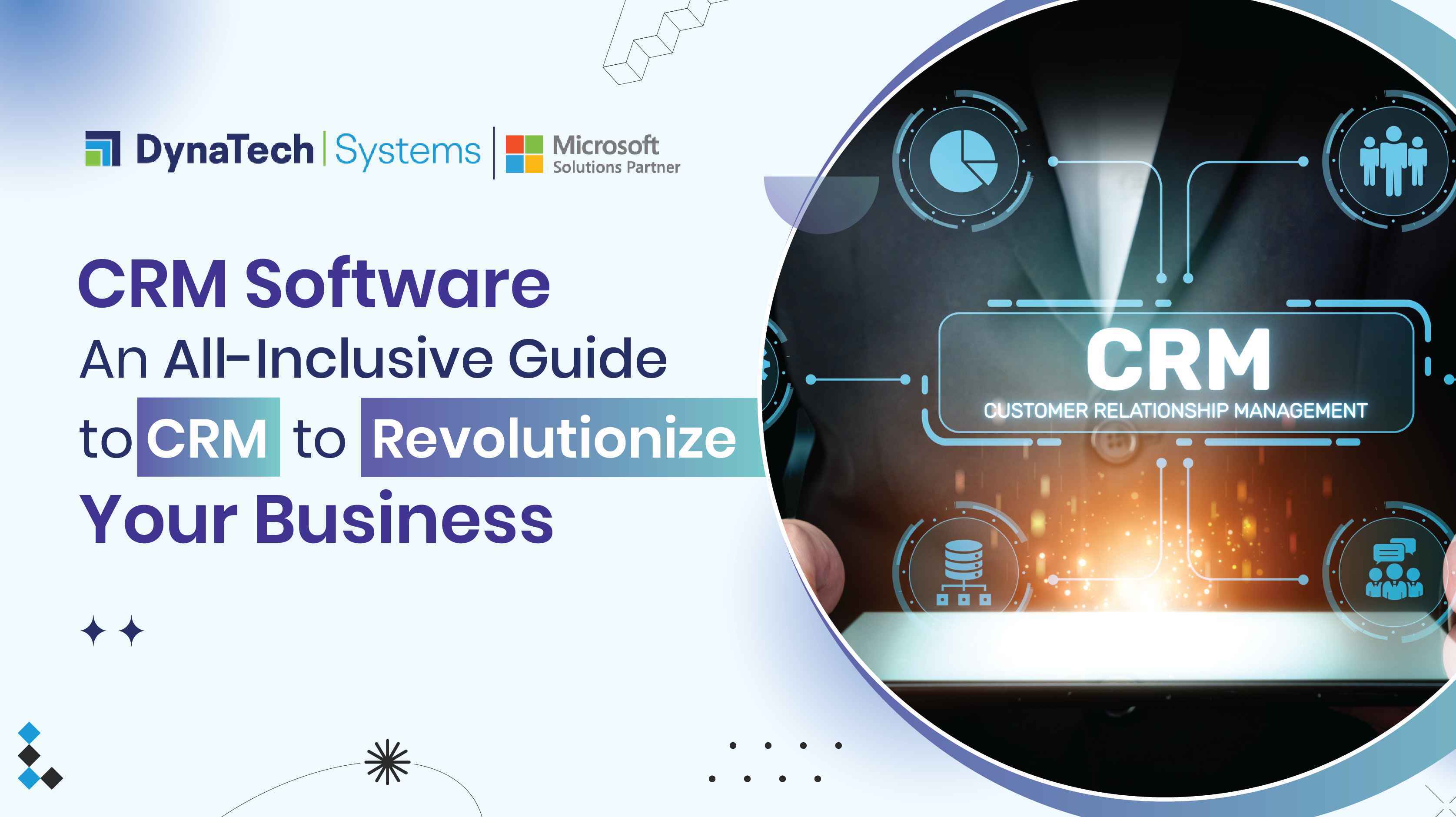Imagine juggling hundreds—or even thousands—of customer interactions using spreadsheets, sticky notes, and scattered emails. Sounds chaotic, right? That’s exactly why big and small businesses turn to Customer Relationship Management (CRM) software.
Customer relationships are the heartbeat of any successful business. Whether you’re a budding startup or a global enterprise, building and maintaining strong customer connections is the key to sustained growth. But as your business expands, manually keeping track of every interaction, inquiry, and follow-up becomes nearly impossible. Missed emails, forgotten leads, and disorganized customer data can quickly lead to lost opportunities and frustrated clients.
That’s where CRM software enters to bring transformation. A CRM system brings all your customer interactions under one roof, helping teams rationalize communication, automate regular tasks, and ensure no customer falls through the cracks. It’s not just a tool—it’s indispensable for organizations whose objective is to create lasting customer relationships while increasing efficiency and revenue. And the numbers speak for themselves.
As per Grand View Research, the CRM industry is booming, with a market value estimated to hit a staggering $113.46 billion by 2027. In fact, 91% of businesses with 10 or more employees already use a CRM solution to stay ahead of the curve. So, if you are new to CRM, this is just the right piece of information for you.
This guide will take you through everything you require—from what CRM is and why it matters to how it works, its key advantages, costs, implementation strategies, and a comparison of the top CRM platforms. Let’s get started with it!
What is Customer Relationship Management (CRM)?
At its core, Customer Relationship Management (CRM) refers to the technology and strategy organizations use to conduct and examine customer interactions. A CRM system allows organizations to monitor sales, automate workflows, and boost customer engagement.
As per the recent research, the global CRM software market was valued at $58.82 billion in 2022 and is projected to grow at a 13.9% CAGR from 2023 to 2030. This incredible growth shows how imperative CRM has become across industries.
CRM Statistics 2025: At a Glance
- Companies using CRM systems see boost in sales by 29%, enhanced productivity by 34%, and improved forecast accuracy by 42%.
- By 2025, AI-driven CRM systems will help businesses increase revenues by $1.1 trillion worldwide.
- According to a recent study, 72% of businesses believe AI-powered CRM tools will enhance personalization and efficiency in customer interactions.
- Mobile CRM adoption is expected to grow by 15% YoY, as more companies empower their sales teams with on-the-go solutions.
- 87% of CRM solutions will be cloud-based by 2025, allowing businesses greater flexibility and scalability.
Why is a CRM System Important?
Investing in a CRM system isn’t just about keeping track of contacts—it’s about understanding what exactly your customers want, consolidating relationships, and building stronger bond with customers. A CRM doesn’t just organize data; it empowers businesses to deliver delightful experiences, close more deals, and make prudent decisions. Here’s why it’s a savior for businesses:
- Stronger Customer Retention – Satisfied customers stick around, and companies that use CRM tools see a 27% increase in customer retention, as per Salesforce. By constantly monitoring interactions, preferences, and past purchases, a CRM helps you nurture relationships and provide bespoke experiences that keep customers coming back.
- Boost in Sales & Productivity – Imagine a sales team that spends minimum time on manual data entry and maximum time closing deals. That’s precisely what a CRM helps implement. Research shows that CRM users experience a 29% increase in sales and a 34% jump in productivity—all credit goes to automation, simplified workflows, and data-powered insights.
- Astute Decision-Making – When you have real-time customer insights at your fingertips, guessing becomes a thing of the past. A CRM enables enterprises in fine-tune marketing campaigns, customizing sales strategies, and make ingenious decisions that drive revenue.
Without a CRM, organizations generally struggle with scattered customer data, missed follow-ups, and disoriented sales processes. This not only leads to lost opportunities but also badly impacts customer satisfaction and, eventually, revenue. In today’s highly competitive business domain, a CRM isn’t just an option—it’s a savior for businesses looking to not just sustain but thrive.
The Game-Changing Benefits of CRM
A well-executed CRM strategy not only makes managing work easy for your teams—it metamorphoses how you communicate with customers, boost sales, and grow your business. Here’s how a CRM can give your organization a competitive edge:
1. A Single Source of Truth for Customer Data
Ever scrambled to find a customer’s purchase history or last conversation? A CRM eliminates that chaos by storing all customer information in one centralized hub. Whether it’s sales, marketing, or customer support, everyone has instant access to up-to-date data, breaking down silos and boosting collaboration.
2. Say Goodbye to Manual Work, Hello to Automation
Why waste time on repetitive tasks when a CRM can do them for you? From automating email follow-ups and lead scoring to scheduling reminders and logging interactions, a CRM frees up valuable time so your team can focus on what truly matters—building relationships and closing deals.
3. Sales and Marketing: Finally, on the Same Page
A disconnect between sales and marketing can lead to opportunities that are failed to hit. With a CRM, marketing teams can monitor customer interactions, segment audiences, and launch targeted campaigns, while sales teams get real-time insights to nurture leads in an efficient manner. This results in more conversions and fewer wasted efforts.
4. A Personalized Experience for Every Customer
Nobody likes an ordinary pitch. A CRM helps organizations perceive customer behavior, preferences, and past interactions; this allows them to offer bespoke recommendations, high-end discounts, and proactive support. When customers feel highly valued, loyalty follows.
5. Smarter Decisions, Backed by Data
Guesswork has no place in the modern business world. A CRM helps with real-time analytics, sales forecasting, and performance monitoring, this enables companies to gauge success, modify strategies, and stay ahead of the competition.
In a nutshell, a CRM isn’t merely a tool—it’s the cornerstone of a modern, customer-centric business. Whether you’re on the quest to improve efficiency, make better customer relationships, or boost revenue, the ideal CRM can make all the difference.
How to Build an Effective CRM Strategy: A Winning Plan for Success
Enforcing a CRM system isn’t just about picking software and hoping for the best—it’s about creating a strategy that brings desirable business results. A properly planned CRM approach can rationalize operations, improve customer relationships, and double revenue. Here’s how you can build an unfailing CRM strategy that sets your business up for success.
1. Start with a Clear Vision
Before working upon CRM implementation, determine what you want to accomplish. Do you need to make better sales conversions? Improve customer support? Automate regular tasks? Your CRM should align with your business goals. A clear roadmap ensures that every feature you use adds real value to your business.
2. Select the Right CRM Solution
Not all CRMs are built in the same manner. Choosing the one that fits your requirements depends on your business size, industry, and budget. Keep these factors into consideration:
- Cloud vs. On-Premise: Cloud-based solutions offer flexibility, while on-premise CRMs provide better control.
- Integration Capabilities: Your CRM should connect smoothly with ERP, marketing automation, and e-commerce platforms.
- AI-Powered Automation: Look for features like predictive analytics and automated workflows to minimize manual effort.
3. Empower Your Team with Training
A CRM system is only as powerful as the people using it. Investing in proper training ensures your employees understand its complete potential. The key objective is not just to train them in how to use the software but to allow them to make the most of it to improve customer relationships and efficiency.
4. Seamlessly Integrate with Existing Tools
A CRM isn’t meant to work in isolation. It should be the central hub that ensures all your essential business tools are synchronized—marketing automation, ERP, analytics, customer service platforms, and even e-commerce solutions. This smooth integration ensures a 360-degree view of your customers, which makes data-driven decision-making feasible.
5. Track, Analyze, and Optimize
The optimal CRM strategies evolved over time. Regularly keep track of performance metrics, garner employee and customer feedback, and make obligatory adjustments. If a feature isn’t adding value, tweak your approach. The aim is continuous improvement to ensure your CRM drives maximum efficiency and growth.
CRM Tools: What to Look for in a CRM Solution
The right CRM isn’t just a database—it’s a growth engine for your business. Here’s what you need to factor in:
- Contact & Lead Management – Monitor customer interactions, store important details, and manage leads effectively.
- Sales Pipeline Management – Visualize deals, constantly track progress, and predict revenue with a clear sales funnel.
- Marketing Automation – Automate email campaigns, social media, and lead nurturing to engage prospects without effort.
- AI & Analytics – Anticipate customer behavior and customized interactions and do better sales forecasting.
- Multi-Channel Support – Cope with emails, chats, calls, and social media conversations in one place.
A well-equipped CRM simplifies workflows, augments sales, and improves customer relationships—making it a must-have for evolving businesses.
Comparison of Popular CRM Platforms
|
Feature |
Microsoft Dynamics 365 CRM |
Salesforce CRM |
HubSpot CRM |
Zoho CRM |
Pipedrive |
|
Best For |
Enterprises & growing businesses |
Large enterprises |
Startups & SMBs |
Small to mid-sized businesses |
Sales-driven teams |
|
Pricing |
Custom pricing based on business needs |
Higher cost with a per-user model |
Free plan with paid tiers |
Affordable, tiered plans |
Budget-friendly |
|
Contact & Lead Management |
Advanced tracking of customer interactions |
Robust system with deep data insights |
Simple and user-friendly |
Good contact management features |
Focused on sales tracking |
|
Sales Pipeline Management |
Customizable pipeline with automation |
Advanced forecasting and deal tracking |
Basic pipeline tracking |
Strong automation tools |
Visual and intuitive deal tracking |
|
Marketing Automation |
Integrated with Microsoft ecosystem |
Includes Pardot and Marketing Cloud |
Free tools for email and ads |
AI-powered marketing automation |
Limited automation options |
|
AI & Predictive Analytics |
AI-driven insights and forecasting |
Einstein AI for advanced data analysis |
Basic reporting and insights |
Zia AI-powered automation |
Lacks advanced AI features |
|
Multi-Channel Support |
Email, chat, phone, and social media |
Omni-channel customer support |
Basic communication channels |
Multi-channel interaction support |
Limited multi-channel features |
|
Customization & Scalability |
Highly customizable and scalable for enterprises |
Extensive customization but complex to manage |
Limited flexibility for scaling |
Flexible with strong customization options |
Less scalable for large businesses |
|
Integration Capabilities |
Seamless integration with Microsoft 365, ERP, and Power BI |
Large third-party app marketplace |
Limited free integrations |
Wide range of third-party integrations |
Basic API support for integrations |
|
Ease of Use |
Moderate learning curve due to advanced features |
Can be complex for new users |
Very user-friendly and easy to navigate |
Intuitive and simple interface |
Easy to use with a clean UI |
|
Support & Community |
Strong Microsoft support and partner network |
Large global community and customer support |
Good free resources and guides |
24/7 support for users |
Limited support options |
Bottom Line: Are you Ready to Transform your Business with CRM Software
Your customers are not merely the names in a database—they’re the heartbeat of your business. Coping with those relationships shouldn’t feel like a juggling act. The ideal CRM transforms scattered data into meaningful connections, smooth workflows, and unstoppable growth. Whether you’re a fast-moving startup or a global organization, a well-enforced CRM fuels efficiency, consolidates customer loyalty and stimulates prudent decision-making.
At DynaTech Systems being a D365 Partner, we go beyond standard CRM setups. We craft ingenious, high-impact Microsoft Dynamics 365 CRM solutions that simplify operations, automate complex tasks, and turn interactions into long-lasting relationships.
Ready to remodel the way you connect with customers? Let’s create something extraordinary together.




























